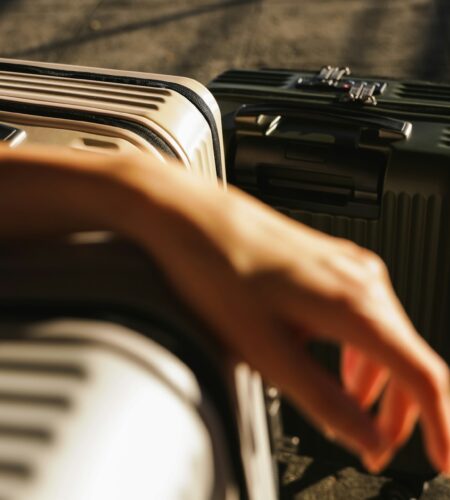Moving to a new country ranks among life’s most exciting adventures, but it also presents unique challenges that can overwhelm even seasoned travelers.
The difference between a smooth transition and months of frustration often comes down to one crucial factor: what you choose to pack and what you leave behind. Unlike a vacation, where you can easily replace forgotten items, an international move requires strategic thinking.
You’re not just packing for a trip—you’re curating the foundation of your new life. Every item in your suitcase should earn its place, whether through necessity, sentimentality, or sheer practicality.
The stakes feel high because they are. Shipping costs can skyrocket, customs regulations vary wildly between countries, and some items that seem essential might hinder your adaptation to local culture.
Meanwhile, forgetting the right documents or personal items can create headaches that last for months.
This comprehensive expat packing list will help you navigate these decisions with confidence, ensuring you arrive at your destination prepared for both the practical realities and emotional challenges of starting fresh in a new country.
Essential Documents and Legal Papers
Your most critical travel essentials aren’t clothes or gadgets—they’re documents. Without proper paperwork, even the most carefully planned international move can grind to a halt at customs or embassy offices.
Must-Have Official Documents
Start with multiple copies of your passport, including certified copies stored separately from the originals. Visa documentation, work permits, and residency papers should be organized in waterproof folders with digital backups stored in cloud storage.
Birth certificates, marriage licenses, and divorce decrees often require apostille certification for international recognition.
Educational transcripts and diplomas, particularly from universities, frequently need official translation and certification in your destination country. Medical records deserve special attention.
Vaccination histories, prescription records, and specialist reports can prevent lengthy delays in accessing healthcare. Many countries require specific vaccinations or health clearances, so research requirements well in advance.
Financial Documentation
Banking relationships don’t automatically transfer internationally. Gather statements from the past year, reference letters from your current bank, and documentation of your credit history.
These papers can accelerate the process of opening local accounts and establishing financial credibility.
Tax returns and income documentation prove essential for rental applications, loan approvals, and various bureaucratic processes. Keep both physical and digital copies readily accessible.
Strategic Clothing Choices
Climate research should guide every clothing decision. Moving from tropical Singapore to Nordic Finland requires a completely different wardrobe strategy than relocating between similar climates.
Weather-Appropriate Essentials
Pack one complete outfit for each season you’ll encounter in your first year. This approach prevents the shock of arriving in winter without proper clothing while avoiding the expense of shipping heavy coats to tropical destinations.
Professional attire often varies significantly between cultures. Research local business dress codes before packing suits or formal wear. Some countries favor conservative styling, while others embrace more casual professional environments.
Quality footwear deserves priority space in your luggage. Well-made shoes that fit properly can be expensive and difficult to find in unfamiliar sizing systems. Pack versatile options that work for multiple occasions rather than highly specialized footwear.
Cultural Considerations
Clothing norms vary dramatically worldwide. Research local customs regarding modesty, color significance, and appropriate casual wear. What feels normal in one culture might draw unwanted attention or appear disrespectful in another.
Consider the shopping landscape of your destination. Countries with limited selection or expensive imported goods make it wise to pack more clothes. Locations with excellent shopping and affordable local options require less clothing in your initial shipment.
Technology and Electronics Strategy
Electronic devices present unique challenges for international moves due to voltage differences, warranty restrictions, and compatibility issues with local networks.
Essential Electronics to Pack
Laptops and smartphones typically work internationally with appropriate adapters, making them safe choices for your carry-on luggage.
Ensure your phone is unlocked for local SIM cards, and research whether your laptop’s power supply handles different voltage standards.
Universal power adapters and quality surge protectors prove invaluable investments. Cheap adapters often fail or damage expensive electronics, while good surge protection prevents costly equipment loss during power fluctuations common in some regions.
External hard drives containing important files, photos, and software provide backup security during the transition period when internet connectivity might be unreliable.
Electronics to Leave Behind
Large appliances rarely justify international shipping costs. Televisions, kitchen appliances, and audio equipment often face compatibility issues with local electrical systems and broadcast standards.
The expense of shipping plus necessary modifications usually exceeds local purchase prices.
Hair dryers, curling irons, and similar high-wattage devices frequently burn out when used with voltage converters. Plan to purchase these items locally rather than risking damage to expensive styling tools.
Gaming consoles present region-locking issues that can prevent access to local games and services. Research compatibility thoroughly before deciding whether to ship gaming equipment.
Personal and Sentimental Items
The emotional aspect of international moves often gets overlooked in practical planning, yet personal items play a crucial role in maintaining mental health during major life transitions.
Irreplaceable Personal Belongings
Family photos, heirloom jewelry, and handwritten letters occupy minimal space but provide immense emotional value during homesick moments. Digitize important photos as backup, but physical copies offer comfort that screens cannot replicate.
Comfort items like favorite pillows, blankets, or stuffed animals might seem childish, but they provide psychological anchoring during the stress of cultural adaptation.
Familiar scents and textures can ease anxiety and improve sleep quality during the adjustment period.
Books hold special significance for many people, though weight restrictions make choices necessary. Select titles with personal meaning rather than easily replaceable novels available in any bookstore.
Practical Limitations
Shipping costs often make it impractical to bring large furniture or appliances. Calculate shipping expenses against local replacement costs before committing to large item transport.
Many expats discover that shipping a favorite couch costs more than purchasing superior local furniture.
Perishable items and foods face customs restrictions in most countries. Research agricultural import laws carefully, as violations can result in significant fines or legal complications.
Items to Avoid Packing
Understanding what not to bring prevents costly mistakes and customs complications that can delay your arrival or result in confiscated items.
Prohibited and Restricted Items
Medication restrictions vary significantly between countries. Prescription drugs that are legal in your home country might be controlled substances elsewhere.
Research pharmaceutical regulations and obtain proper documentation for necessary medications well before travel.
Certain electronics, books, or media might face censorship restrictions depending on your destination. Research local content laws to avoid having personal items confiscated at customs.
Plant materials, seeds, and certain food products typically face strict agricultural controls. Even items like wooden souvenirs or leather goods might require special treatment or face import restrictions.
Economically Unwise Choices
Heavy items with low value-to-weight ratios rarely justify shipping costs. Basic household goods like towels, bedding, and cleaning supplies often cost less to purchase locally than to ship internationally.
Specialty items designed for your home country’s infrastructure might not function properly abroad.
Region-specific electronics, appliances designed for different electrical systems, or tools using incompatible measurement systems create more problems than convenience.
Smart Shopping Strategy for Your New Home
Successful expats often adopt a “buy local” mentality that serves multiple purposes: supporting the local economy, ensuring product compatibility, and building community connections through shopping relationships.
Research Local Shopping Options
Investigate local retailers, markets, and online shopping options before arrival. Understanding where to find specific items reduces stress during your first weeks and helps budget for initial setup costs.
Some countries offer an excellent selection and prices for certain categories, while having limited options for others. Electronics might be cheaper locally, while imported specialty foods could cost significantly more than shipping favorite items from home.
Budget for Initial Purchases
Plan for substantial initial shopping expenses covering basic household setup. This budget should include immediate needs like bedding, basic cookware, and cleaning supplies, plus longer-term purchases like furniture and major appliances.
Making Your International Move Successful
Smart packing represents just one element of successful expat transitions, but thoughtful preparation significantly impacts your adjustment experience and long-term satisfaction with international living.
The key lies in balancing practical needs with emotional comfort while respecting the cultural norms and legal requirements of your new home.
Remember that perfect packing decisions don’t exist—every choice involves trade-offs between cost, convenience, and sentiment. Start your packing process at least three months before departure.
This timeline allows for document processing, research into local conditions, and thoughtful decision-making about personal belongings. Rush packing leads to expensive mistakes and forgotten essentials.
Consider creating connections with other expats who have made similar moves. Online communities and social media groups often provide invaluable advice specific to your destination country and can offer insights that general guides cannot provide.
Your international move marks the beginning of an incredible adventure. Smart packing choices set the foundation for that adventure to unfold smoothly, allowing you to focus on the exciting challenges of building a new life rather than dealing with preventable logistical headaches.
Subscribe to our email newsletter to get the latest posts delivered right to your email.

